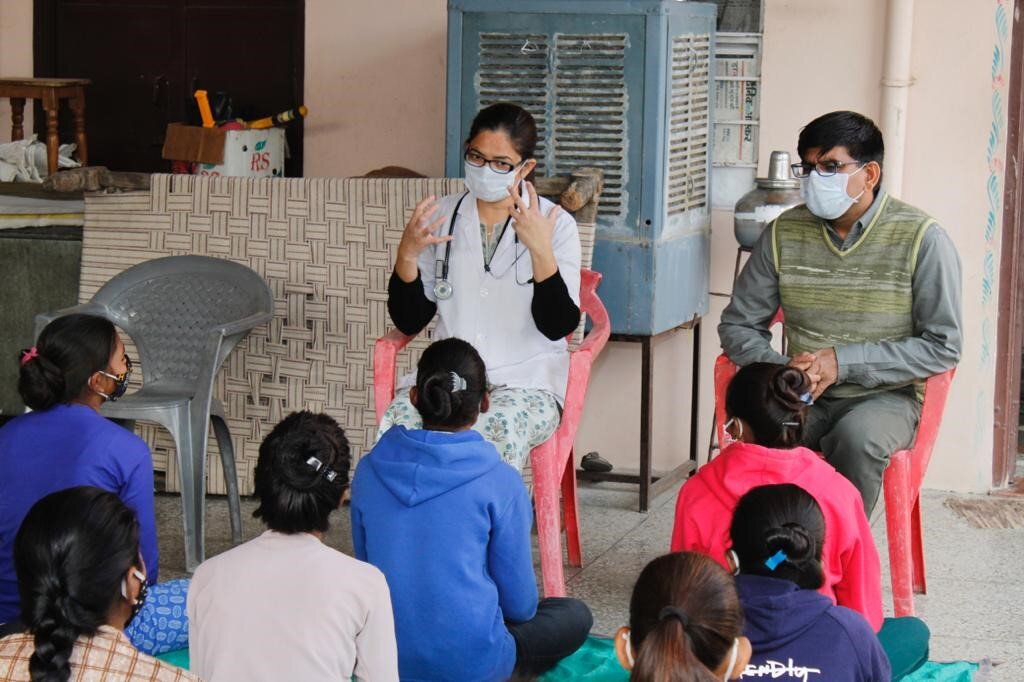|
During the COVID-19 pandemic, many families, widows, and fatherless children in the communities in which we work struggled with food insecurity. Save Kids Trust (SKT) served these families by providing dry rations kits that include food staples like rice, lentils, breads, oil, and masala. While serving dry ration kits inside the communities we serve, SKT noticed there were more young women and girls in the struggling families. In many cases, there was no father in the household and the families were led entirely by women: elder sisters, mothers, or grandmothers. Dr. Sharwan Saini, SKT’s Founder and Executive Director, was struck by the number of female-led households and families, and as the team got to know these individuals it become increasingly clear that many of these women were marginalized by harmful social and cultural norms. Perhaps the most glaring of these norms are the misconceptions and taboos surrounding menstruation and female reproductive health. Menstrual taboos and superstitions are widespread in India and negatively impact both women’s physical health and their capacity to contribute to their homes and communities. You can learn more about this issue here. In response, Dr. Saini and his wife, Dr. Rinku Saini, decided to launch Women’s Focus Initiative, a community-based education program that aims to erode longstanding taboos informed by harmful socio-cultural norms. Building on SKT’s existing relationships in local villages, the SKT team will recruit women as community health workers, equipping them with the knowledge and resources to conduct health awareness sessions focused on menstruation and reproductive health. The program will leverage existing training materials and methods to sensitively confront myths and provide education on good menstruation hygiene and practices. SKT will use these materials in community training sessions with our community health workers. Dr. Saini hosted the first of these sessions at the end of January 2021. Although the session was a success, Dr. Saini and the SKT team discovered that most of the community health workers that came to the training were themselves struggling with malnutrition and anemia. As such, the women had irregular menstruation cycles and had many questions about normal female reproductive health. Dr. Rinku eventually evaluated each of the women, gathered their history, logged them as clinic patients, and arranged for treatment. As they receive medical care, each of these young women will continue to learn more about female reproductive health so that they can take care of themselves and teach others in their communities. Helping educate women about their bodies from a young age is crucial for their health, the health of their future children, and that of the community. Please join us by making a donation on our webpage or through GlobalGiving.
0 Comments
Leave a Reply. |
|
Save Kids TrustSave Kids Trust India is a Public Charitable Social Trust.
Save Kids Trust USA is a 501(c)(3) EIN #45-4935938 and all donations to Save Kids Trust are income-tax deductible to the extent allowed by law. View our privacy policy. |
Join Our Mailing ListStay up to date on the latest from Save Kids Trust!
|
© SaveKidsTrust. All rights reserved.




